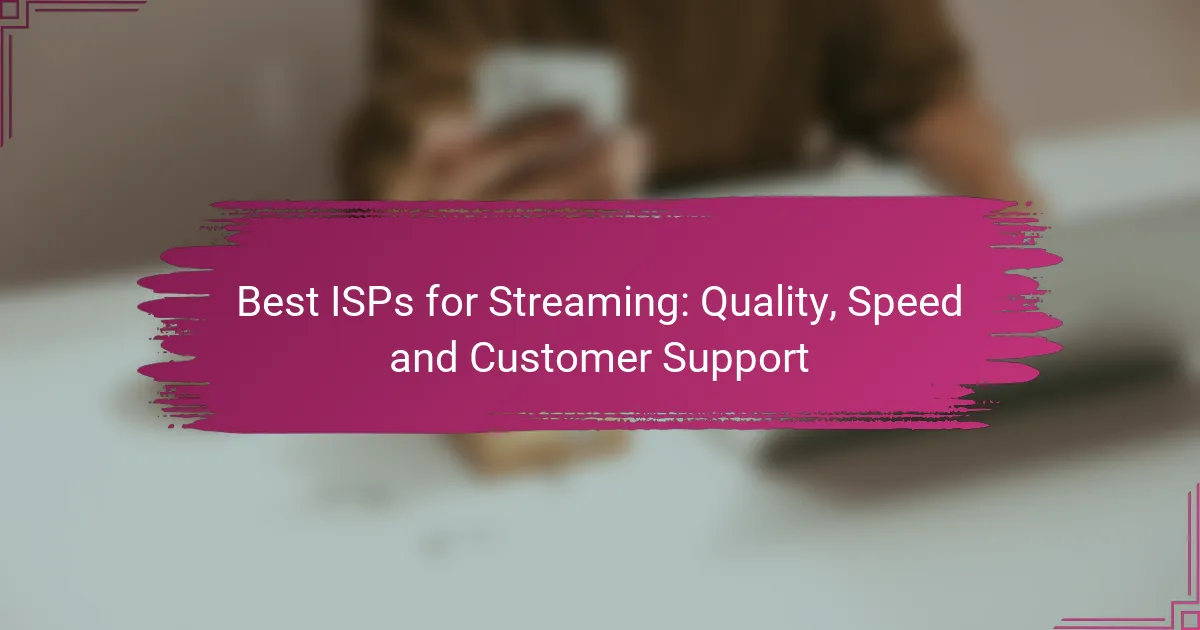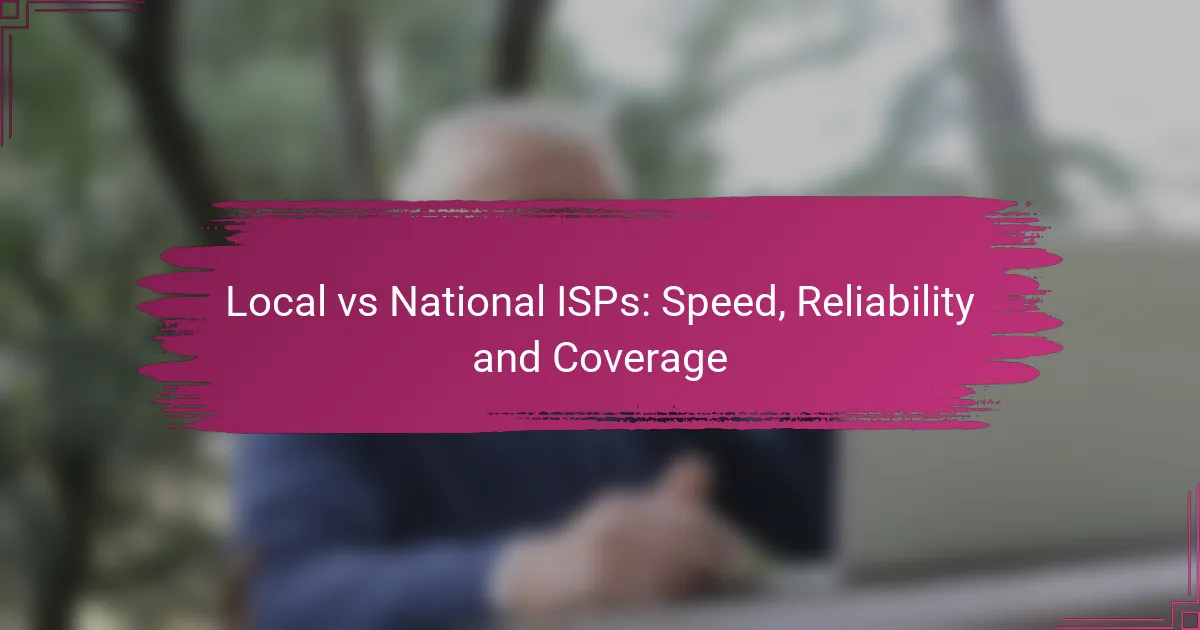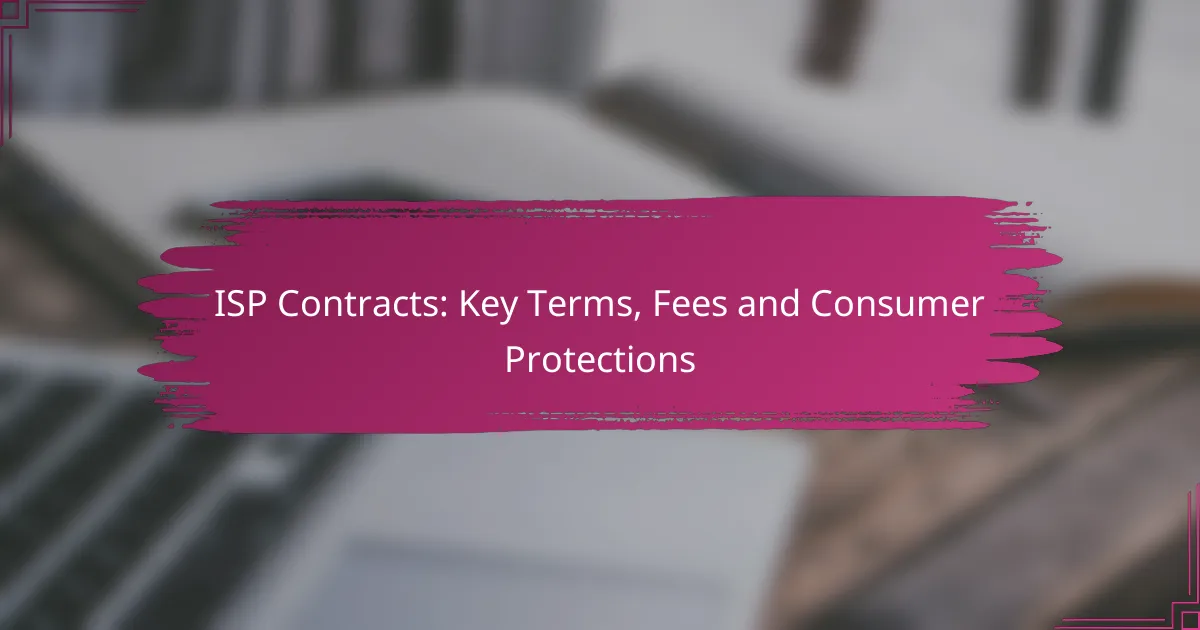When it comes to streaming, the best Internet Service Providers (ISPs) offer high-speed connections, low latency, and excellent customer support. Providers like Virgin Media, BT Broadband, and Sky Broadband are recognized for their ability to deliver the performance needed for seamless HD and 4K content. With recommended speeds of at least 25 Mbps for HD and 50 Mbps for 4K, choosing the right ISP can significantly enhance your viewing experience.
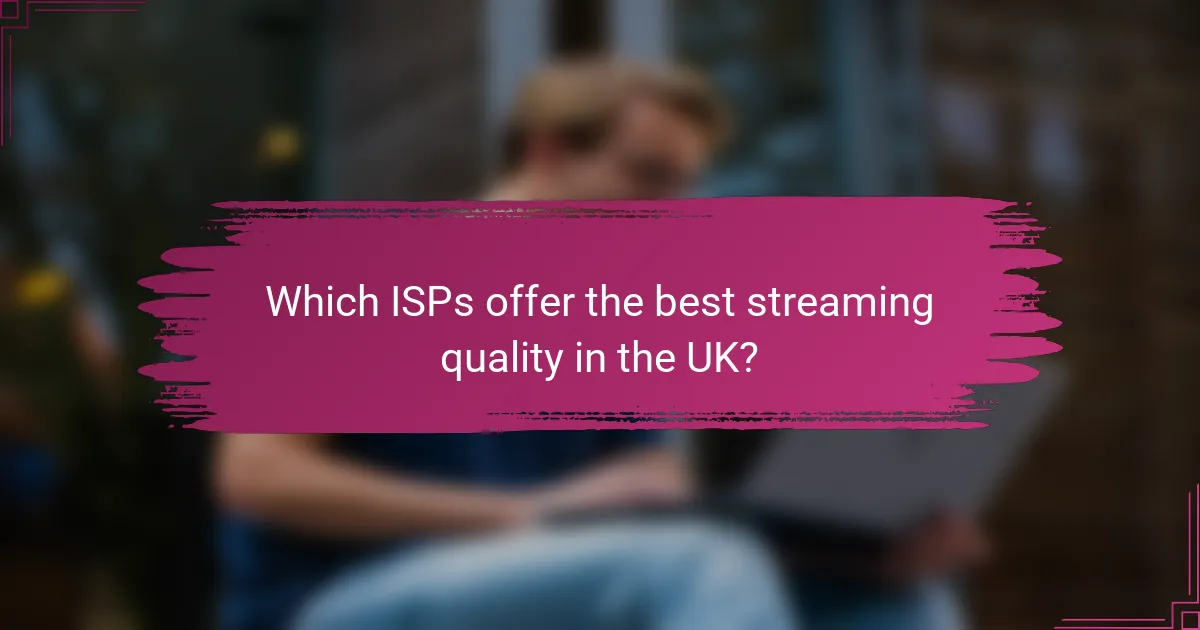
Which ISPs offer the best streaming quality in the UK?
The best ISPs for streaming quality in the UK typically provide high-speed connections, low latency, and reliable customer support. Key players like Virgin Media, BT Broadband, and Sky Broadband stand out for their performance and service offerings tailored to streaming needs.
Virgin Media
Virgin Media is known for its ultra-fast broadband services, often delivering speeds up to 1 Gbps. This high speed is beneficial for streaming in 4K and for multiple users accessing content simultaneously without buffering.
When considering Virgin Media, check for availability in your area, as their services can vary by location. They also offer a range of packages that include TV bundles, which can enhance your streaming experience.
BT Broadband
BT Broadband offers a variety of plans with speeds that can reach up to 900 Mbps, making it a solid choice for streaming. Their packages often include access to BT TV, which provides additional streaming options and channels.
BT’s customer support is generally well-rated, which is crucial if you encounter any issues while streaming. Ensure to look for deals that may include free trials for streaming services, adding extra value to your subscription.
Sky Broadband
Sky Broadband provides reliable internet with speeds up to 500 Mbps, suitable for streaming HD and 4K content. Their service is complemented by Sky Q, which allows for seamless streaming and recording of shows.
Sky also offers a range of packages that can be tailored to your viewing preferences, including options for sports and movies. Be aware of any data caps that may apply, especially if you stream frequently or in high definition.
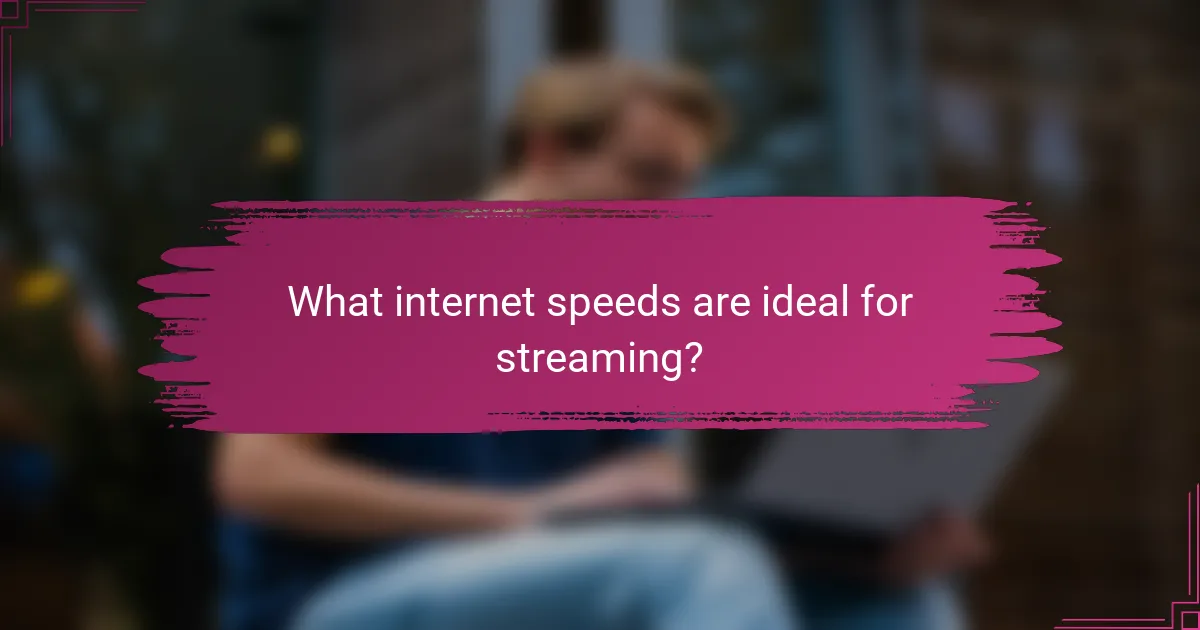
What internet speeds are ideal for streaming?
For optimal streaming, internet speeds of at least 25 Mbps are recommended for HD content, while 50 Mbps or higher is ideal for 4K streaming. These speeds ensure smooth playback without buffering, allowing for an enjoyable viewing experience.
25 Mbps for HD streaming
A minimum speed of 25 Mbps is generally sufficient for streaming HD content on platforms like Netflix or Hulu. This speed allows for high-quality video without interruptions, making it suitable for households with multiple users streaming simultaneously.
When considering your internet plan, check if your provider offers consistent speeds. Look for plans that guarantee at least 25 Mbps during peak usage times to avoid potential slowdowns.
50 Mbps for 4K streaming
If you want to stream in 4K resolution, aim for internet speeds of at least 50 Mbps. This higher bandwidth accommodates the increased data required for ultra-high-definition content, ensuring a seamless viewing experience.
In addition to speed, consider your home network setup. Using a wired connection can provide more stable speeds compared to Wi-Fi, especially in larger homes where signal strength may vary. Always verify that your streaming device supports 4K playback to take full advantage of your internet speed.

How does customer support impact streaming experience?
Customer support significantly affects the streaming experience by ensuring that issues are resolved quickly and effectively. Reliable support can minimize downtime and enhance user satisfaction, especially during peak streaming times when problems may arise.
Importance of responsive support
Responsive customer support is crucial for addressing streaming issues promptly. When users encounter buffering, connectivity problems, or service interruptions, having access to quick assistance can make a significant difference. ISPs that offer 24/7 support through multiple channels, such as phone, chat, and email, tend to provide a better overall experience.
For instance, if a user experiences a sudden drop in streaming quality, being able to reach a knowledgeable representative within minutes can help restore service faster. Look for ISPs with high customer satisfaction ratings in support responsiveness.
Availability of technical assistance
The availability of technical assistance is essential for troubleshooting streaming-related problems. ISPs that have dedicated technical support teams can help users diagnose issues related to their network settings, equipment, or even streaming service configurations. This specialized help can lead to quicker resolutions and less frustration.
Consider ISPs that offer comprehensive online resources, such as FAQs, troubleshooting guides, and community forums. These resources can empower users to resolve minor issues independently, while still having access to expert help when needed.
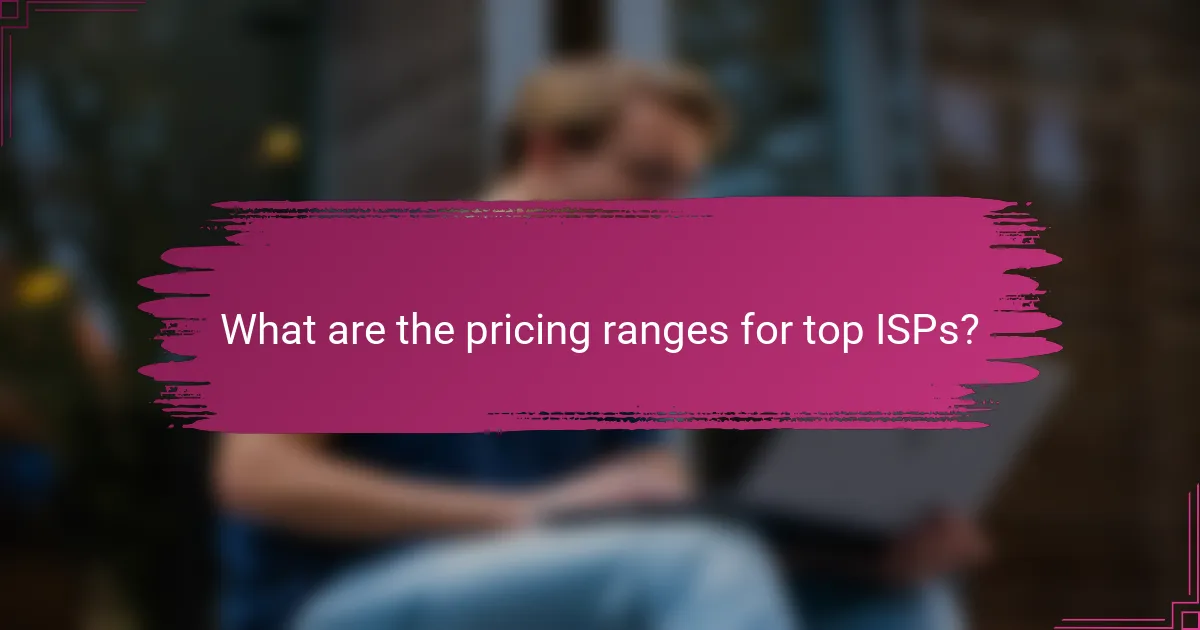
What are the pricing ranges for top ISPs?
The pricing for top Internet Service Providers (ISPs) varies significantly based on speed, service quality, and customer support. Generally, you can expect to pay anywhere from $30 to $100 per month, depending on the package and additional features you choose.
Virgin Media pricing options
Virgin Media offers a range of pricing options that cater to different needs. Their packages typically start around £30 per month for basic broadband, while more advanced plans with higher speeds can reach up to £60 or more monthly. Customers should consider their usage habits to select the most suitable plan.
Additionally, Virgin Media often provides promotional offers that can reduce initial costs, so checking for current deals is advisable. Be aware of any potential price increases after the initial contract period.
BT Broadband pricing tiers
BT Broadband features several pricing tiers, starting at approximately £25 per month for standard broadband services. Higher-speed fiber packages can range from £30 to £60 monthly, depending on the speed and additional features included.
When choosing a BT Broadband plan, consider the speed requirements for your household. BT also offers bundles that include TV and phone services, which can provide better overall value for those looking for comprehensive packages.
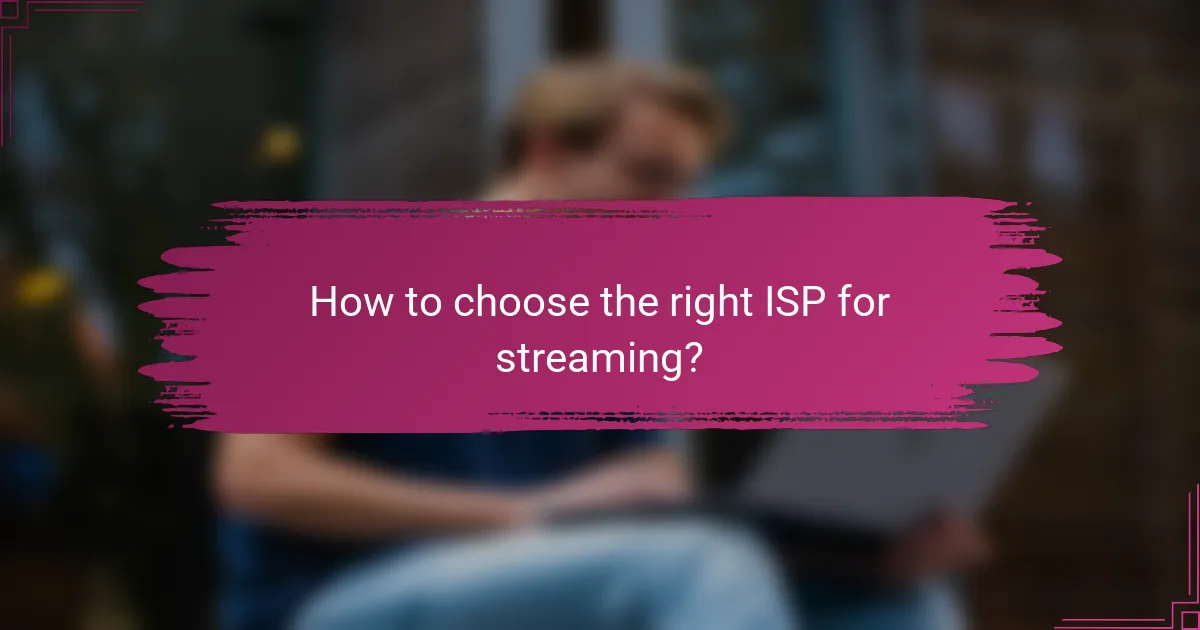
How to choose the right ISP for streaming?
Choosing the right ISP for streaming involves assessing speed, reliability, and customer support. Look for providers that offer high bandwidth and low latency to ensure a smooth viewing experience without interruptions.
Assessing speed requirements
Streaming services typically require a minimum speed to function optimally. For standard definition, a speed of around 3-4 Mbps is sufficient, while high definition may need 5-8 Mbps, and 4K streaming can demand 25 Mbps or more. Consider your household’s simultaneous usage to determine the total speed needed.
To assess your speed requirements, check the streaming service’s recommendations and factor in the number of devices connected at once. For example, if multiple family members stream simultaneously, you may need to multiply the required speed by the number of users.
Evaluating customer reviews
Customer reviews provide valuable insights into an ISP’s performance, especially regarding streaming quality and customer service. Look for feedback on speed consistency, downtime, and how well the ISP handles issues related to streaming.
Utilize platforms like social media, review sites, and forums to gather diverse opinions. Pay attention to recurring themes in the reviews, such as frequent buffering or poor customer support, which can indicate potential problems with the ISP.

What are the best ISPs for streaming in major UK cities?
The best ISPs for streaming in major UK cities typically offer high-speed connections, reliable performance, and strong customer support. Providers like Virgin Media, BT, Sky, and TalkTalk are often recommended for their streaming capabilities, depending on the specific city and user needs.
London: Virgin Media vs. BT
In London, Virgin Media is known for its ultra-fast broadband, offering speeds that can reach up to 1 Gbps, making it ideal for streaming high-definition content. BT, on the other hand, provides a solid alternative with its Fibre 100 and Fibre 250 packages, which offer reliable speeds suitable for most streaming needs.
When choosing between Virgin Media and BT, consider factors such as installation costs, contract lengths, and customer service ratings. Virgin Media often has more competitive pricing for higher speeds, while BT may excel in customer support and additional features like TV bundles.
Birmingham: Sky vs. TalkTalk
In Birmingham, Sky offers a variety of packages that cater well to streaming, with speeds up to 500 Mbps available through their Superfast and Ultrafast plans. TalkTalk provides a more budget-friendly option, with speeds that typically range from 35 Mbps to 67 Mbps, which can be sufficient for casual streaming.
When deciding between Sky and TalkTalk, assess your streaming habits and the number of devices in use. Sky’s packages often include extras like Sky Q, which enhances the streaming experience, while TalkTalk may appeal to those looking for lower monthly costs without the frills.
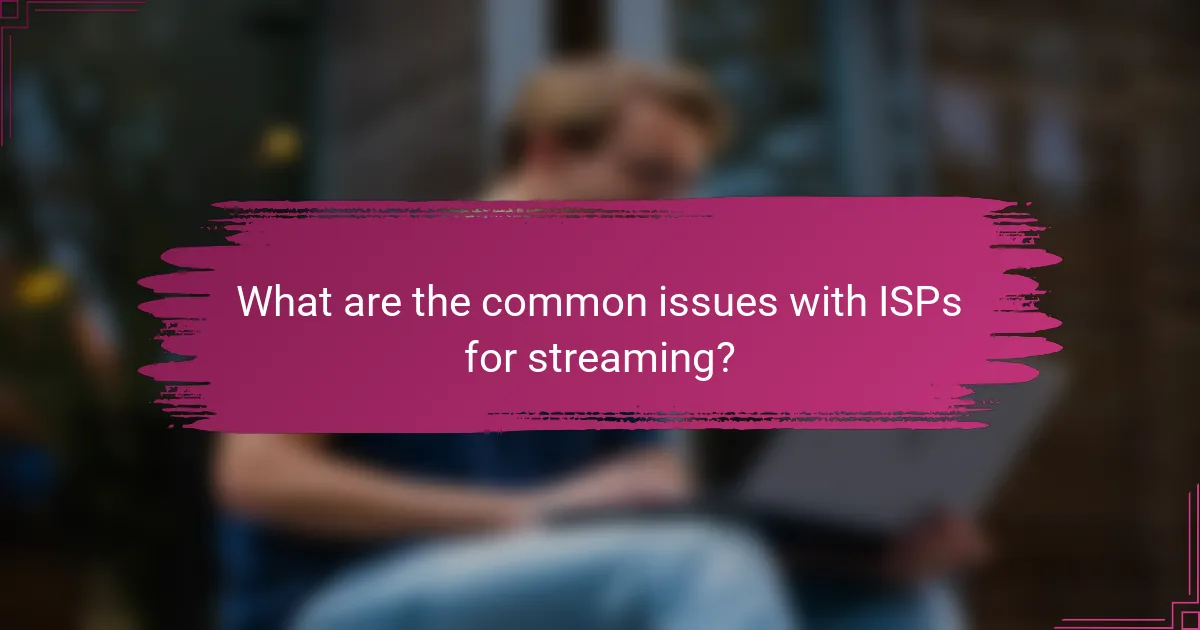
What are the common issues with ISPs for streaming?
Common issues with ISPs for streaming include buffering, latency, service outages, and overall reliability. These factors can significantly impact the quality of your streaming experience, leading to interruptions and frustration.
Buffering and latency problems
Buffering occurs when data is not transmitted quickly enough to keep up with playback, often due to insufficient bandwidth. Latency, measured in milliseconds, refers to the delay before data starts transferring, which can disrupt live streaming events or interactive content.
To minimize buffering and latency, consider an ISP that offers high-speed plans, ideally with download speeds of at least 25 Mbps for standard streaming. For 4K content, look for speeds above 50 Mbps. Additionally, using a wired connection instead of Wi-Fi can help reduce latency.
Service outages and reliability
Service outages can occur due to various factors, including weather conditions, technical issues, or maintenance work. A reliable ISP should have a good track record of uptime, ideally above 99%. Frequent outages can lead to interruptions during critical viewing times.
To assess an ISP’s reliability, check customer reviews and outage reports in your area. Some ISPs offer compensation for prolonged outages, so review their policies before signing up. It’s also wise to choose a provider with strong customer support to address any issues promptly.
